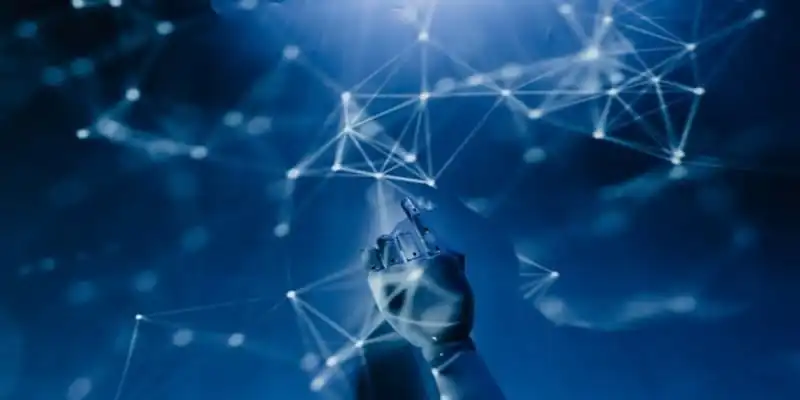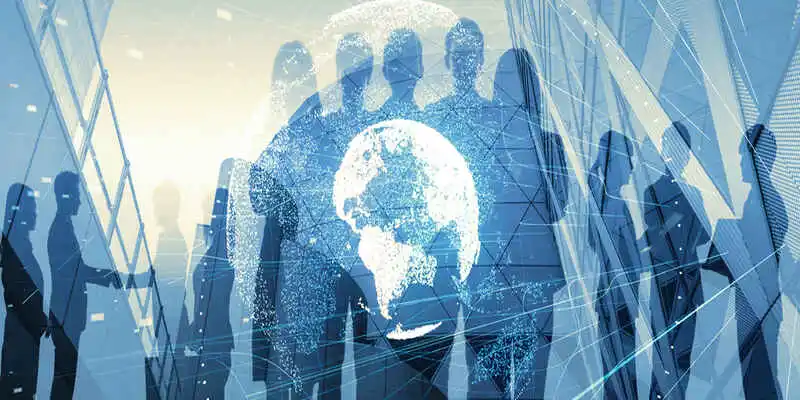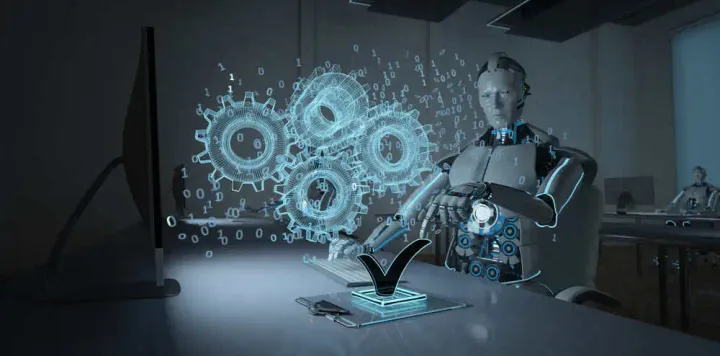Positives & Negatives of Artificial Intelligence (AI)
Artificial Intelligence (AI) is continually getting momentum and hype across the planet. The rise in AI sparks a charm and excitement for imaginary possibilities. We have discussed a few pros and cons of AI due to which it is concluded as a blessing or a curse for the people of different opinions.

Artificial Intelligence – a Blessing or a Curse
It has always been the dream of humans to build machines having the ability to think like them. For a long time, humans had been watching this far-fetched dream coming true just in science fiction movies until the self-driving cars and Siri-like applications were introduced. From the smartphones in our pockets to the robots cleaning our floors, we have incorporated Artificial Intelligence into our lives.
The term artificial intelligence was first coined in 1950 by John McCarthy while Alan Turing in his article “Computing Machinery and Intelligence” had already started talking about this fact in the same year. Artificial Intelligence is one of the most budding technologies and assists in creating smart machines that can think and reason like a human brain. However, since the past few decades, AI is continually getting momentum and hype and there have been several debates where some consider it a blessing while for others it is a curse. AI is just like a half-filled glass of water where different people view it differently. To some, the advancements in AI stir up the memory of a science fiction horror movie released in 1994 named “Mary Shelley’s Frankenstein” depicting both fear and horror. To others, the rise in AI sparks a charm and excitement for imaginary possibilities. There must be certain goods and bads of AI due to which it is concluded as a blessing or a curse for the people of different opinions. We will discuss a few of these positive and negative points of AI in this article.
Positives of AI
AI systems are undoubtedly becoming smarter than humans. They are not just beating humans in games like Chess and even getting higher scores in IQ tests but are also taking the human’s quality of life to the next level. The positives of AI are enormous and with all its below-discussed benefits, AI certainly holds great promise and is reshaping our entire world.
1. Improved Efficiency
An AI machine can process huge datasets within seconds with more accuracy as compared to humans. Hence AI has not just saved time but also improved efficiency in each sector of life. The efficiency of AI is scalable which means that it can perform both simple and complex tasks over and again without getting exhausted.
With the help of AI systems in the Healthcare sector, medical professionals can diagnose a life-threatening disease in a matter of seconds that involved thousands of scans and plenty of time in the past. In 2016, a study was conducted by John Hopkins in the USA on death rate data for the past eight years. The study concluded that more than 250,000 people were losing their lives every year due to medical errors and misdiagnosis that counted for 10% of all US deaths. The study also reported that medical error was the third major cause of death in the USA after heart attacks and cancer. This research emphasized the need for incorporating AI in the healthcare sector.
PathAI- AI-based technology that leads to a more accurate and quick diagnose of cancer at early stages. A study revealed that an AI deep learning model and algorithms outperformed 11 pathologists in diagnosing cancer.
Buoy Health - A symptom and cure checker using algorithms to identify and treat illness. A Chatbot listens to the patient’s symptoms and guides him with a more accurate and quick diagnosis.
Zebra Medical Vision - AI-based Radiology Assistant that receives imaging scans and analyzes them automatically for clinical findings in a short time.
AI applications in the healthcare sector are also continually adding value in annual savings for the healthcare economy of the United States. As per an analysis by Accenture, the AI applications can create $150 billion in annual savings for the healthcare economy of the US by the year 2026 that was just $600 million in 2014.
An AI system can also compute the financial risks with enormous accuracy and even assist us in our academic learning. AI models are also helpful for content writers and can scan the articles in no time. Hence AI models assist the writers and publishers to identify with the words and topics to be included in an article to make it worth-reading and appealing to the readers.
2. Human Error Reduction
Humans being a human are prone to mistakes, but a well-programmed artificially intelligent machine isn’t. In contrast to humans, an AI system neither lapses in concentration nor is affected by adverse environmental conditions. For instance, a doctor exhausted with his hectic routine or an overly-stressed pilot of a falling aircraft is more prone to make fatal mistakes or poor decisions leading to a tragedy. However, an artificially intelligent system is never tired or stressed-out and makes decisions based on previously collected information resulting in reduced errors and increased precision as it is not vulnerable in the same way.
Amazon and Walmart are using coordinated teams of robots in their warehouses. These robot teams perform the tasks of sorting, replenishing, and selecting the stocks. The online grocer Ocado also employs automated machines in its Robotic Warehouse. Its wireless robot control system directs thousands of 4G connected robots that are issued commands almost ten times per second to synchronize the movement of a large number of crates without any error.
3. Improved Cybersecurity
Although AI is employed in many fields, cybersecurity is one of the areas receiving particular consideration due to increased threat rates and data breaching that results in exposing much confidential information. According to a report, it involves the global cost of 3.86 million dollars to recover from a data breach. Studies have also concluded that it takes almost 196 days to recover from a typical data breach. So the companies make sense to use AI to avoid both financial losses and the wastage of time. AI offers an enormous potential to help organizations in improving their cybersecurity approach through intelligent analysis of code and configuration along with activity monitoring. The ability of AI to analyze several datasets allows the development of existing systems in a way to reduce cyber attacks. AI-based techniques are used to eradicate unwanted data, hence enabling a security expert to better understand the cyber environment and detect anomalous activity. For instance, in banks or businesses, the Feedzai platform is generally integrated to warn the human fraud and speed up its detection process. According to a report by Sapin in 2017, AI will help in securing the IoT world by identifying and fighting with the intruders more quickly as compared to human beings. AI helps in quickly identifying the suspicious issues on any website. For example, in 2016, Google blacklisted around 20,000 websites for having malicious software or malware. Google also blacklisted 50,000 websites for phishing scams per week. Therefore, many security executives have reported being fully dependent on AI technology to shield their sensitive data and networks.
4. 24x7 Availability and Getting Humans Free from Monotonous Tasks
There is an inherent weakness in humans of getting bored or exhausted with routine work. They need refreshment time and again. However, an AI-powered machine has reinforced this human weakness. It does not get bored or distracted and can work 24x7 once programmed. As AI-enabled machines have automated our routine tasks and surpassed humans in several meticulous or repetitive jobs, so they have empowered humans to upgrade their creative skills. As monotonous work is reduced, humans are more focused on the creative aspects of their tasks.
5. No Impact of Hostile Environment
There are many jobs that humans either can’t perform or are too risky to be performed. By employing AI capabilities for hazardous tasks reduces the risk to human well-being. AI-enabled machines are not influenced by hostile environments and hence are capable enough to complete the tasks such as exploring space and deepest parts of oceans, defusing a bomb, and mining for oil or coal and can undergo other natural or man-made calamities that could be injurious for humans.
For instance:
- In the Nuclear Energy industry, humans have limitations to perform some tasks because of harmful radiations. Even in the case of some catastrophes like Nuclear Explosion, humans cannot tolerate hazardous radiation. E.g., you must be well aware of the Soviet Union explosion of the Chernobyle Nuclear Power Plant in the year 1986. As AI-powered robots did not exist at that time, so the fire could not be controlled in the initial stages to reduce the after-effects of radiation. Two plant workers died on the same night while further 28 people lost their lives within a few weeks as a result of harmful radiation. They ultimately dispensed boron and sand from the helicopter to control the fire. AI technologies help in overcoming such limitations of human beings. AI-powered robots can handle radiation and are used to eliminate the debris pieces, particularly after a catastrophe.
- With AI technologies, we can also anticipate the upcoming threats of wildfire and control it with drones, once it prevails.
- Exploring space is difficult for humans as the environment might not be human-friendly. In such cases, AI-enabled exploration programs are designed. Mars Curiosity Rover is an example of a Mars exploration program by NASA. Curiosity is an AI-driven robot that was landed on Mars in the year 2012 and is still there with the mission to determine whether this red planet is habitable to microbial life or not.
- Apart from that, AI is also helpful in tackling one of the main reasons for climate change – deforestation by identifying and broadcasting illegitimate logging sounds.
- Autonomous underwater vehicles and AI-driven robotics can accumulate data from the marine ecosystem shedding new lights on the diversity of species.
Negatives of AI
Artificial Intelligence is undoubtedly doing many goods and will continue to benefit humanity with more and more advancements. However, along with the positives, the advancements in AI have also stimulated thinking about associated negative consequences or potential risks. The sooner we start contemplating the disadvantages of AI, the better prepared we will be to mitigate the potential dangers. So let’s have a look at the disadvantages of AI:
1. Uncontrollability
Machines are lucid but very inhuman and uncontrollable as they lack emotions and moral values. In the modern era, Elon Musk is considered one of the most active persons associated with AI. He believes that AI is a gigantic threat to humanity in the future. He has warned that AI is way more dangerous than nukes and will overtake humans by 2025. Stephen Hawking, a legendary Physicist, also had a strong disagreement with AI developments as he believed that a rogue AI might be hard to stop. These apprehensions of Hawking and Musk must be having some credibility. Since AI is a new horizon, so we are not yet aware of its limits. Generally speaking, an inventor always holds ultimate control over his invention, but this may not be the case with AI. Once AI becomes autonomous and superintelligent, it may set itself free from the directions of its inventor.
An international team of researchers conducted many theoretical calculations. They concluded that it would be impossible to control an AI-enabled super intelligent machine. In 2016, some tests were designed by researchers to evaluate the behavior of DeepMind with others in traumatic situations. DeepMind exhibited aggressive behavior and did not co-operate well with others under stressful circumstances. Hence, the fears of renowned intellectuals ensure the possibility of a dystopian future with AI as depicted in sci-fi movies so far.
2. Lack of Out of Box thinking or Original Creativity
Artificial intelligence cannot imitate the inherent intuitive abilities and creativity of the human brain. Human beings are emotional intellectuals. Human thoughts are directed by their feelings which completely lacks in machines. In contrast to humans, an AI system cannot learn from its experience or improve itself on its own. Hence, no matter how smart a machine is, it can never replace a human. The AI systems can outperform humans in some specifically programmed tasks. If such systems fall into a situation where they have to decide outside of what they are programmed for, they fail drastically. That is why many AI paradigms are considered Black Boxes as they just try to plot a relationship between input and output variables based on training data sets. Contrary to the human brain, whose beauty falls in being quite volatile or irrational, Artificial intelligence is considered a logical beast that can consume and interpret symbols, numbers, and words adeptly but lacks abstract thinking and creativity.
3. Lack of Jobs for Humans
Unemployment is an adverse phenomenon. Unemployed people with free minds can lead to the destructive use of their innovative minds. With the advances in AI systems, human interference in many tasks has been reduced to a great extent. Many repetitive tasks conducted before by the human force are being designated to AI robots that can accomplish them with even more efficacy. This replacement raises employment threats to the minimum qualified individuals in many organizations. In assembly lines, the robots have already taken many jobs as in Walmart and Ocado. The Autonomous car is another technology that will dislocate a huge number of human drivers leaving them jobless.
Gartner predicts that AI technologies will take over approximately 69% of the manager’s workload by 2024. Another research claims that 20 million global manufacturing jobs will be replaced by robots by 2030.
4. Laziness or Degradation of the Human Brain
AI applications automating most of our daily tasks are leading to the loss of human mental capacities and resulting in human brain degradation and laziness. In the AI-dependent environment, all the routine jobs will be carried out by machines. Hence, humans will get addicted and have a comfort zone which will ultimately result in physically and mentally weaker generations.
5. Privacy Threats and Cyberattacks
Another risk stems from the more vulnerability of AI algorithms to cyberattacks compared to any other software. Criminals are continuously attacking our computers with viruses. In a 100-page report issued in February 2018, entitled “Malicious Use of AI” 26 researchers from 14 different institutions, including academic, civil, and industries reported that AI has a potential threat to digital, physical, and political security.
6. Poor Understanding of the Intention and Behavior of the User
An AI system interacting with people has the drawback of just carrying out the command straightaway rather than understanding the intention or behavior behind it. It just performs what it is programmed for and is not capable to distinguish between right or wrong. Just suppose someone asks an autonomous driving car to take him to a place as quickly as possible! It will just receive the message and drive at an extremely high speed while crushing the pedestrians. Such uncontrollable superintelligence is a threat to the survival of humanity.
An AI system must have the ability to analyze and judge if the behavior of humans is “normal” or “abnormal.” Many cases have been reported where humans could not succeed in passing the exact instructions to the AI algorithm about how it must behave in an unusual scenario.
7. Plenty of Costs
The hardware and software of AI systems involve plenty of installation cost. For instance, one of Google’s AlphaGo systems involved more than 1000 CPUs and 200 GPUs. Such systems are not just quite expensive but are also hard to build and transport being massive in size. AI systems also need to be updated over time to meet the latest advances.
Moreover, the repairing and maintenance of machines also demand plenty of costs. In case of a severe crash, the procedure for recovering the lost codes and reinstating the system might require extensive costs.
Final Thoughts
Artificial intelligence is the future—that is undeniable. However, there is much discussion over what exactly that future will embrace. Some anticipate a utopian future where machines will be curing all diseases, eliminating poverty, and leading to an era of unprecedented peace. On the contrary, others are pessimistic and envisioning a dystopianfuture where machine intelligence will surpass human intelligence and become uncontrollable.
Hence, it is a matter of a great deal to remain just positive when we talk about AI. Just like any other rising technology having the power to disrupt, the individuals and enterprises must also be alert of the pitfalls. But being aware of the pitfalls does not mean being rigid to the benefits. The AI-powered machines have undeniably made our lives easy but there is a strong need to accentuate generating ethical codes and parameters to ensure that the risks linked with AI are alleviated to the minimum. Gartner has advice for the businesses and IT leaders that they must endeavor to incise the AI hype from reality by cautiously considering the AI goods vs bads. Each coin is two-sided and definitely, Artificial Intelligence is not unlike. According to Sapin (2017), AI is a double-edged sword in many areas; however, the unremitting advancements in AI give the impression that the positives of AI outweigh its negatives.
Like any other technology, there is no intrinsic good or bad of AI, it is just how we intend to use and implement it. In short, it is not AI that manipulates data and uses it against us, but it’s we who use AI to manipulate data. Therefore, humans need to adopt AI sensibly to stay away from the abusive and superfluous consequences. Hence, embracing a more vigilant and careful approach towards AI will turn even its disadvantages into advantages. If human intelligence is amplified with all the positives of artificial intelligence, it will have the potential to make a civilization boom like never before.


